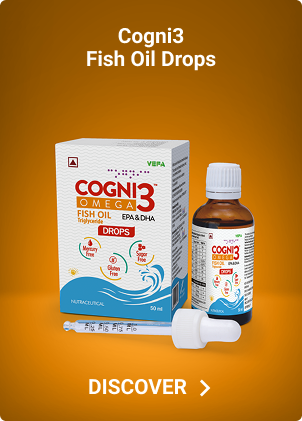In today’s fast-paced world, where junk food often takes center stage and stress levels are high, many of us forget to care for one of the most important parts of our body—our brain and heart. That’s where omega 3 supplements come in. But what exactly is omega 3, and who really needs to take it?
Let’s break it down in simple, easy-to-understand terms.
What is Omega 3?
Omega 3 is a type of healthy fat that our bodies cannot make on their own. That means we must get it from food or supplements. These are the most significant forms of omega 3:
- EPA (Eicosapentaenoic acid)
- DHA (Docosahexaenoic acid)
- ALA (Alpha-linolenic acid)
Fatty fishes, such as salmon, tuna, and sardines, are the main source of EPA and DHA. ALA comes from plant sources like flax seeds and walnuts. But for most people, especially vegetarians or picky eaters, it’s tough to get enough omega 3 from diet alone.
Also Read: How Does a Health Supplement Improve Your Health?
Why is Omega 3 Important?
Omega 3 helps your body in several powerful ways:
- Supports Brain Health – especially important for children, teens, and older adults.
- Good for Your Heart – helps reduce the risk of heart disease and keeps cholesterol in check.
- Mood & Mental Health – may reduce symptoms of anxiety, depression, and ADHD.
- Eye Health – DHA is a major part of the retina, helping prevent vision problems.
- Reduces Inflammation – helpful for people with joint pain or chronic diseases.
Who Needs Omega 3 Supplements the Most?
While omega 3 are good for everyone, some groups may benefit more from supplements:
1. Children with Poor Concentration or Hyperactivity (like ADHD)
Omega 3, especially DHA, is important for brain development. Kids with focus issues may show improvement in behavior, attention span, and learning with regular omega 3 intake.
2. Pregnant & Breastfeeding Women
The development of the baby’s brain and eyes depends on DHA. To promote the health of both the mother and the unborn child, omega 3 supplements are frequently advised.
3. People Who Don’t Eat Fish
If you’re vegetarian, vegan, or simply don’t like seafood, you’re likely not getting enough omega 3. In that case, a good-quality supplement can fill the gap.
4. Adults Over 50
As we age, our heart and brain need more care. Omega 3s can help protect against memory loss, dementia, and heart disease.
5. People with High Cholesterol or Heart Problems
Omega 3s help reduce triglycerides (a type of fat in your blood) and may prevent plaque from building up in arteries.
6. Those With Joint Pain or Arthritis
Because omega 3 fights inflammation, it can reduce pain and stiffness in joints, especially in conditions like rheumatoid arthritis.
7. Students, Professionals & People Under Stress
Omega 3 may improve mood, memory, and mental performance—perfect for students preparing for exams or professionals with high-pressure jobs.
Also Read: Why Does My Child Struggle to Concentrate Even After Sleeping Well and Eating Right?
How to Take Omega 3 Supplements?
Omega 3 supplements are usually available as flavored oils, soft gel capsules, chewable for kids. It’s best to take them with a meal, especially one that contains fat, to help with absorption.
Make sure to choose a trusted brand, and check for DHA & EPA content (not just total omega 3). Look for algae oil, a plant-based source of DHA, if you’re a vegetarian.
Talk to Your Doctor
While omega 3 supplements are generally safe, it’s still smart to consult your nutritionist, especially if you’re on blood-thinning medicines, pregnant, or have a health condition.
Also Read: My teen forgets everything! Is it just a phase or do they need brain nutrition?
Conclusion
Omega 3 supplements are not just a trend—they’re a valuable part of staying mentally sharp and physically strong. Whether you’re a busy parent, a growing child, a senior citizen, or someone just trying to eat healthier, adding omega 3 to your routine could make a big difference. Remember: A healthy mind and body begin with the right nutrients. And omega 3 is one of the best you can give yourself.












